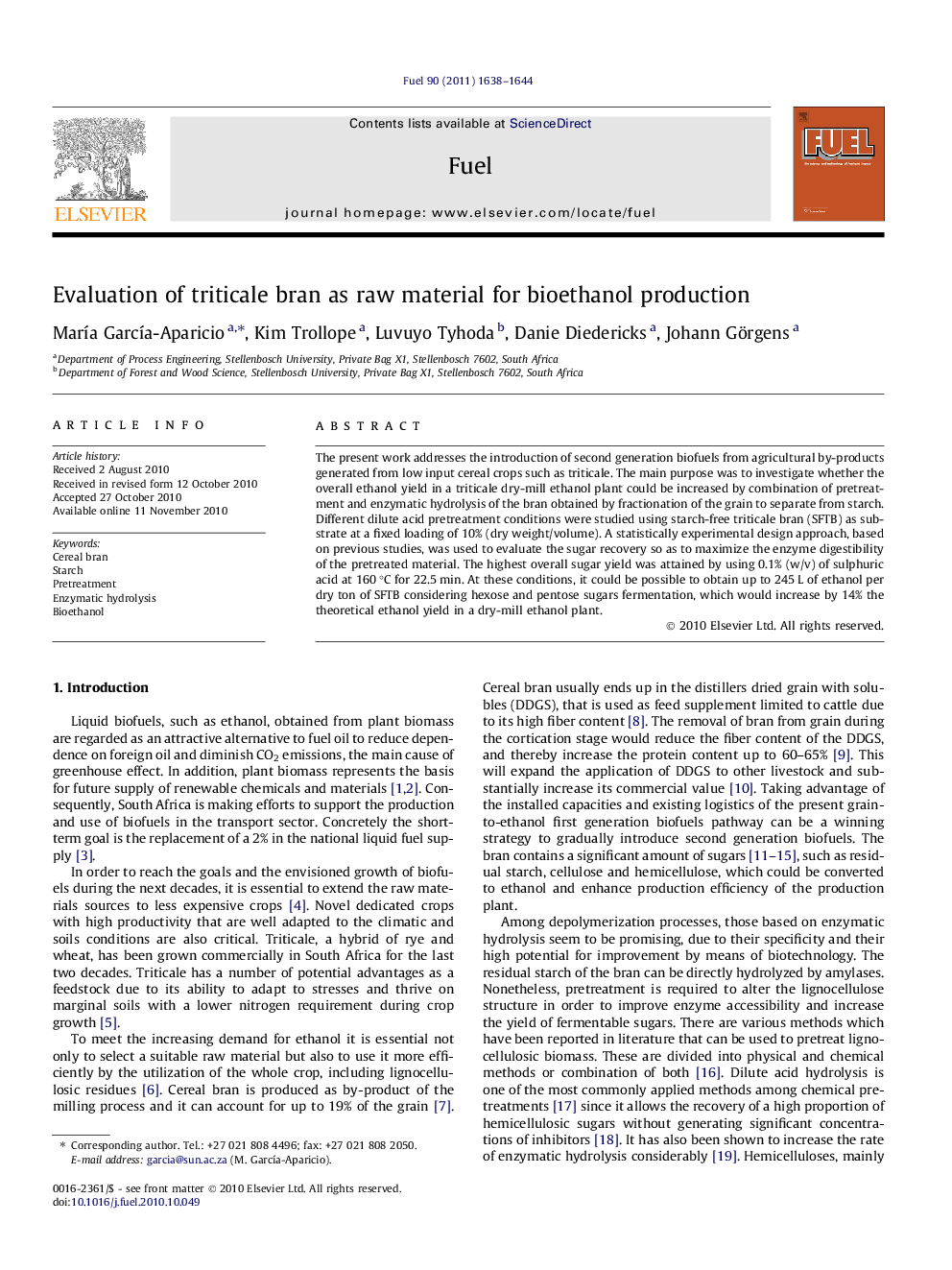| Article ID | Journal | Published Year | Pages | File Type |
|---|---|---|---|---|
| 10273081 | Fuel | 2011 | 7 Pages |
Abstract
The present work addresses the introduction of second generation biofuels from agricultural by-products generated from low input cereal crops such as triticale. The main purpose was to investigate whether the overall ethanol yield in a triticale dry-mill ethanol plant could be increased by combination of pretreatment and enzymatic hydrolysis of the bran obtained by fractionation of the grain to separate from starch. Different dilute acid pretreatment conditions were studied using starch-free triticale bran (SFTB) as substrate at a fixed loading of 10% (dry weight/volume). A statistically experimental design approach, based on previous studies, was used to evaluate the sugar recovery so as to maximize the enzyme digestibility of the pretreated material. The highest overall sugar yield was attained by using 0.1% (w/v) of sulphuric acid at 160 °C for 22.5 min. At these conditions, it could be possible to obtain up to 245 L of ethanol per dry ton of SFTB considering hexose and pentose sugars fermentation, which would increase by 14% the theoretical ethanol yield in a dry-mill ethanol plant.
Related Topics
Physical Sciences and Engineering
Chemical Engineering
Chemical Engineering (General)
Authors
MarÃa GarcÃa-Aparicio, Kim Trollope, Luvuyo Tyhoda, Danie Diedericks, Johann Görgens,
